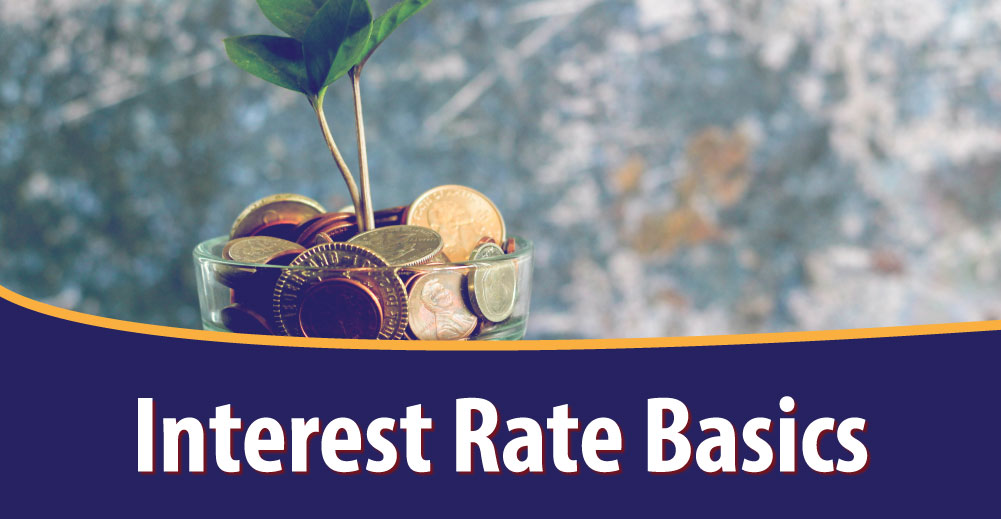Interest Rate Basics
Interest rates are an important part of understanding and managing finances. If you’ve ever made a large purchase like a house or car or gotten a credit card or a loan, you’ve likely heard of interest rates. This article will explain what interest rates are, what affects them, and how they are applied.
What is an Interest Rate?
Interest is simply the cost lenders charge for borrowing money. As the interest rate goes up, the monthly payment amount also goes up.
Usually, interest rates are based on credit-worthiness. Keeping a good credit score goes a long way towards lowering your rate. Borrowers who demonstrate their credit-worthiness by paying bills on time can usually take advantage of lower interest rates.
What Affects an Interest Rate
As stated above, credit-worthiness plays a large factor in the interest rate that borrower is charged. Credit worth can be measured in the form of credit a credit score. While there are several things that can affect your credit score a few of the main things are: payment history, total amount borrowed, derogatory marks, credit age, total accounts, and hard inquiries.
Credit scores play a large part in affecting the interest rate, but they are not the only thing. The number of months you wish to repay the loan and what type of collateral is used (if any) also affects the rate.
Some lenders are willing to work with borrowers who have no credit or low credit scores. These circumstances usually involve collateral or a co-borrower. Having one of these things can help lower an interest rate for a prospective borrower.
How are Interest Rates Applied?
The amount that is borrowed is known as the principal. With a simple interest rate, interest is applied to the unpaid principal (or amount borrowed). If your borrower is not using a simple interest calculation, be sure you understand how interest will be applied.
Interest rates can be separated into fixed or variable. Fixed interest rates mean that the interest rate will not change during the life of the loan. Fixed interest rates are usually on things like mortgages, car loans, or personal loans. When the loan is financed borrowers agree to pay the lender back at the fixed interest rate. This ensures that payments will be relatively consistent during the life of the loan.
Variable interest rates mean that the interest rate can change during the life of the loan. These types of interest rates are usually attached to credit cards but can also be found on mortgages or other types of loans. These rates change periodically and are usually tied to the rates that financial institutions charge each other.
As an example, you may get a credit card at 8% for 1 year, but after that year the rate may change to 9%. After that first year, a new principal and interest payments are calculated based on the new interest rate and the remaining balance.
Conclusion
Understanding interest rates, what affects them, and how they are applied can help you have a better grip on your finances. With this information you can take advantage of greater credit-worthiness or make changes to increase credit-worthiness and secure a lower rate.
If you’d like to see the numbers in action, check out our calculators. Simply enter different numbers into the calculators to see how interest rates affect the payments and the loan terms.





